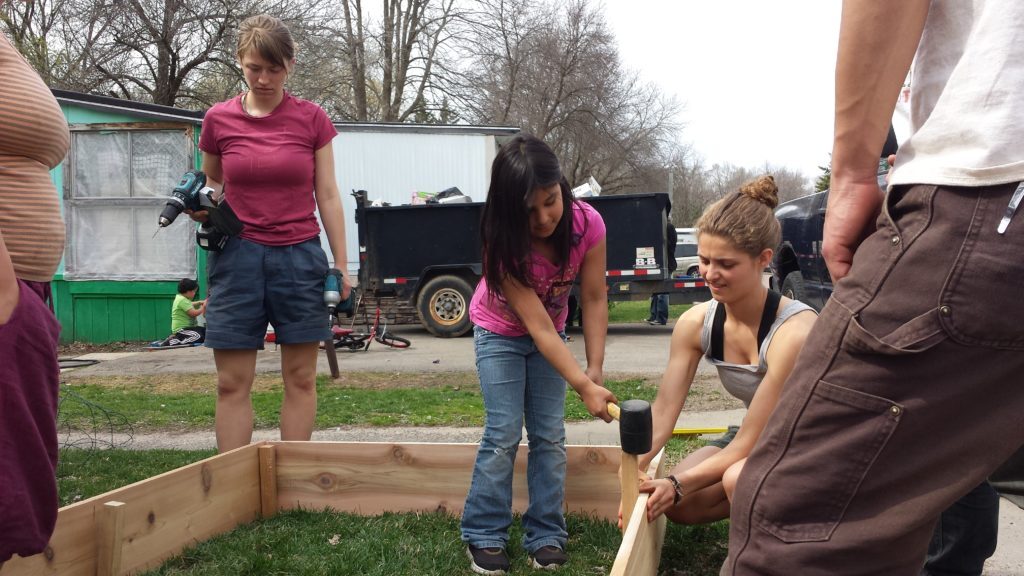“The land knows you, even when you are lost.” – Robin Wall Kimmerer, Braiding Sweetgrass

Refuse
- Avoid fertilizers when possible, as they can contaminate the soil and water.
- Purchase organic versions of goods like this if needed; Paisley Gardens in Northfield has a variety of organic potting soils and mulch.
Reduce
- Purchase durable, higher quality tools meant to last; all else being equal, these are more sustainable, since they can be replaced less frequently.
- Decrease the number of gardening supplies your household consumes.
Reuse
- AaroWaste explains multiple methods of reusing lawn trimmings. Leaving the trimmings on the lawn is a perfectly viable option! Similarly, letting fallen leaves remain on your lawn remain is viable.
- Reuse household materials for gardening. Clean Air Gardening offers a video about how to start plants in a cardboard egg container.
Recycle
- Recycle water from your household via a greywater system or similar practice.
- The Green Home Guide explains how recycling this water can be done at a variety of different cost levels.
- Compost is an excellent method to dispose of trimmings.
- Notably, dirt is not accepted. Please see this complete list of what Northfield Curbside Compost accepts.
- If practicing backyard composting, learn how to create your own potting mix. Compost can act as a nutrient-rich alternative to fertilizing. Learn more online at Clean Air Gardening.
- Compost your Jack-o’-Lantern! This Brightly Article walks through the simple steps.
Example: Re-Growing Vegetables From Scraps
Carrots—and many other vegetables—can be re-grown from their scraps. Rural Sprout has a list of twenty vegetables that can be re-grown from their scraps, along with instructions on how to accomplish this.